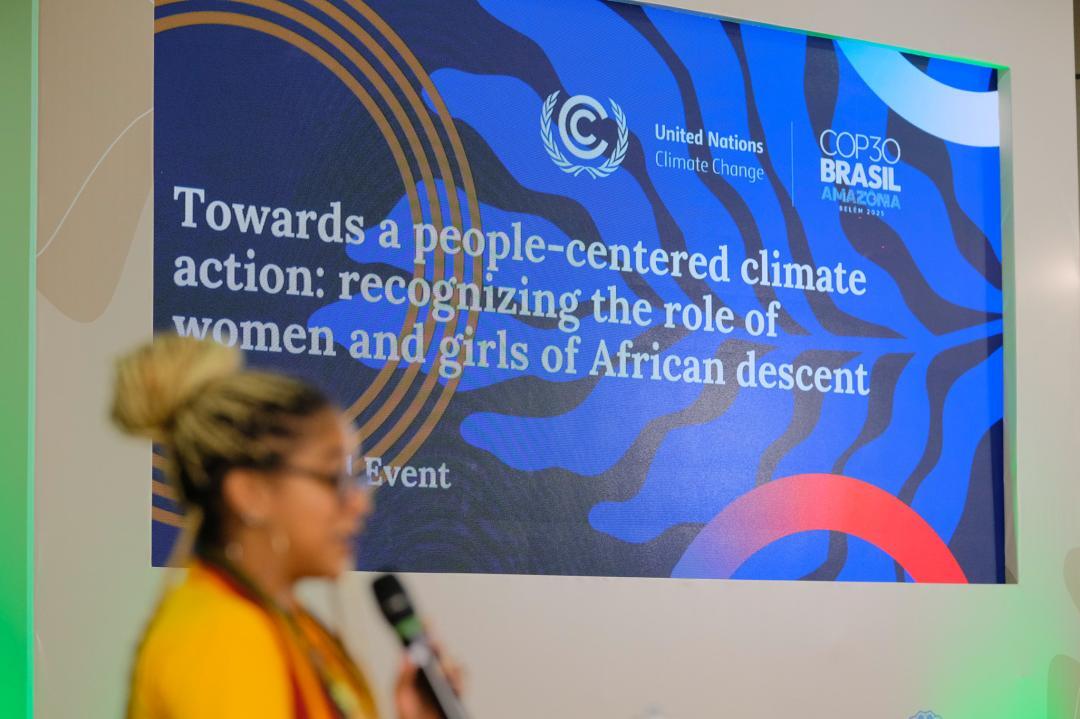
COP30 agrees landmark gender plan, UN urges strong implementation
The 30th Conference of the Parties (COP30) of the United Nations Framework Convention on Climate Change (UNFCCC) has concluded in Belem, Brazil, with a landmark agreement on a new global framework to advance gender equality in climate action. The Belem Gender Action Plan (GAP) is a nine-year roadmap that aims to place women and girls at the centre of climate policy, recognizing their critical role in addressing the climate crisis.
The adoption of the Belem Gender Action Plan marks a significant milestone in the global effort to address the disproportionate impact of climate change on women and girls. Women are more vulnerable to the effects of climate change due to their social, economic, and cultural roles, which often limit their access to resources, information, and decision-making power. Climate change exacerbates existing gender inequalities, making it even more challenging for women to adapt to its impacts.
The Belem Gender Action Plan is a comprehensive framework that outlines a range of actions to be taken by governments, international organizations, and civil society to promote gender equality in climate policy and action. The plan recognizes the importance of gender mainstreaming in all aspects of climate change policy, from mitigation and adaptation to loss and damage.
According to UN Women, the Belem Gender Action Plan is “a blueprint for action” over the next decade, providing a clear roadmap for governments, international organizations, and civil society to work together to advance gender equality in climate action. The plan sets out specific targets and indicators to measure progress, ensuring that countries are held accountable for their commitments.
The Belem Gender Action Plan has several key objectives, including:
- Promoting gender mainstreaming in climate policy: The plan calls for the integration of gender perspectives into all aspects of climate policy, including mitigation, adaptation, and loss and damage.
- Enhancing women’s participation and leadership: The plan aims to increase women’s participation and leadership in climate decision-making at all levels, from local to global.
- Supporting women’s access to climate finance: The plan recognizes the importance of women’s access to climate finance, including funding for climate change adaptation and mitigation projects.
- Addressing gender-based violence and insecurity: The plan acknowledges the link between climate change and gender-based violence, and calls for measures to prevent and respond to violence against women and girls.
The adoption of the Belem Gender Action Plan is a significant achievement, but its success will depend on strong implementation by governments, international organizations, and civil society. UN Women has urged countries to take immediate action to implement the plan, emphasizing the need for concrete commitments and robust accountability mechanisms.
The plan’s implementation will require significant resources, including funding, capacity building, and technical assistance. Governments and international organizations will need to work together to support countries in implementing the plan, particularly in developing countries where resources are limited.
Civil society organizations, including women’s organizations, will also play a critical role in monitoring the implementation of the Belem Gender Action Plan and holding governments and international organizations accountable for their commitments. Women’s organizations have been instrumental in pushing for gender equality in climate policy, and their continued advocacy and activism will be essential in ensuring that the plan is implemented effectively.
In conclusion, the adoption of the Belem Gender Action Plan at COP30 is a landmark agreement that has the potential to transform the way we address climate change. By placing women and girls at the centre of climate policy, we can ensure that climate action is more effective, equitable, and sustainable. The plan’s implementation will require strong commitment and action from governments, international organizations, and civil society, but the rewards will be significant. As we move forward, it is essential that we prioritize the implementation of the Belem Gender Action Plan and work together to create a more just and equitable world for all.






